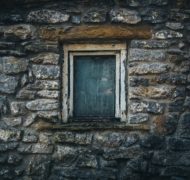Rahab: Diverse Situations Require Ezer Work (Joshua 2)
Article / Produced by TOW Project
Sometimes surprising women are called to show up as ezers in unusual situations. Rahab was one of these examples. Here's the back-story. God had used Moses to free the Hebrew people from slavery in Egypt, and Moses had led this huge band of people for forty years in the desert before they arrived east of Canaan, ready to conquer the Promised Land. By then Moses had died and Joshua took charge of around three million people camped on the east side of the Jordan River, across the water from their destination.
As the Israelites (the Hebrew people) prepared for battle, their first objective was the important walled city of Jericho. As a wise commander, Joshua sent two spies across the river to find out all they could about the city. Enter the ezer woman named Rahab. Most Bible translations tell us that she was a prostitute, though some think she was merely an innkeeper. Regardless of her profession, she owned a house spanning the double wall surrounding Jericho, a good location from which the two spies could carry out their mission. Joshua 2 recounts their experience there.
Jericho's king heard about the spies and sent a contingent of soldiers to arrest them. But Rahab hid the spies on her flat roof under stalks of flax drying there. She told the soldiers that the men had come to her, but that they had left, and if the soldiers hurried they would catch up with the spies on the road back to the river. When the coast was clear, Rahab went up on her roof and had a fascinating conversation with the two Israeli spies.
How is it that a pagan Canaanite prostitute could lie to authorities and still be an ezer woman? The answer lies in her conversation with the two spies in which she said:
I know that the Lord has given you the land, and that dread of you has fallen on us, and that all the inhabitants of the land melt in fear before you. For we have heard how the Lord dried up the water of the Red Sea before you when you came out of Egypt, and what you did to the two kings of the Amorites that were beyond Jordan...whom you utterly destroyed. As soon as we heard it, our hearts melted, and there was no courage left in any of us because of you. The Lord your God is indeed God in heaven above and on earth below. Now then, since I have dealt kindly with you, swear to me by the Lord that you in turn will deal kindly with my family (Joshua 2:8-12).
Rahab had come to believe that the Israelites' Lord was indeed "God in heaven above and on earth below." Turning her back on the gods and goddesses of Canaan and on her loyalty to her own people, she sheltered the spies, saving their lives. She had become a believer in the Lord and was willing to risk her own life to further God's purposes. She used her ezer power to back her new allegiance. Letting the spies slide down a sturdy rope out a window on the outer wall, she sent them safely on their way. You can read the story of God's amazing deliverance of Jericho into Israeli hands in Joshua 6. In the end Rahab and all her family became one with God's people. Whatever she had done in the past became irrelevant as she cast her lot with the God of Israel. God didn't hold her accountable for her past but gave her a new beginning. This isn't the last we hear of Rahab in the Bible. In Matthew 1 we discover her name among the ancestors of Jesus Christ.
This ezer woman stands before us, witnessing to the possibilities within each of us. Whatever you are, whatever may haunt you from your past, know that God looks, not at that, but at what you can become by faith. God is the God of new beginnings.







